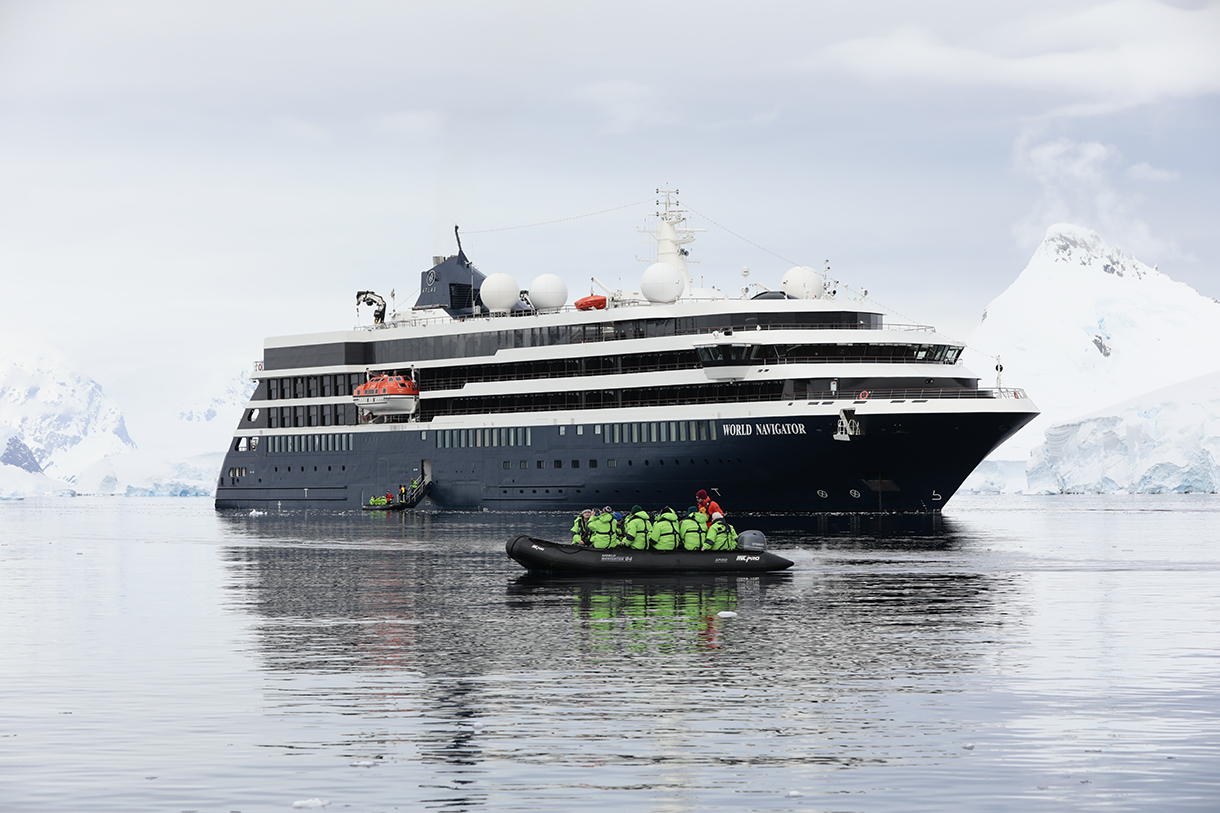
World Navigator
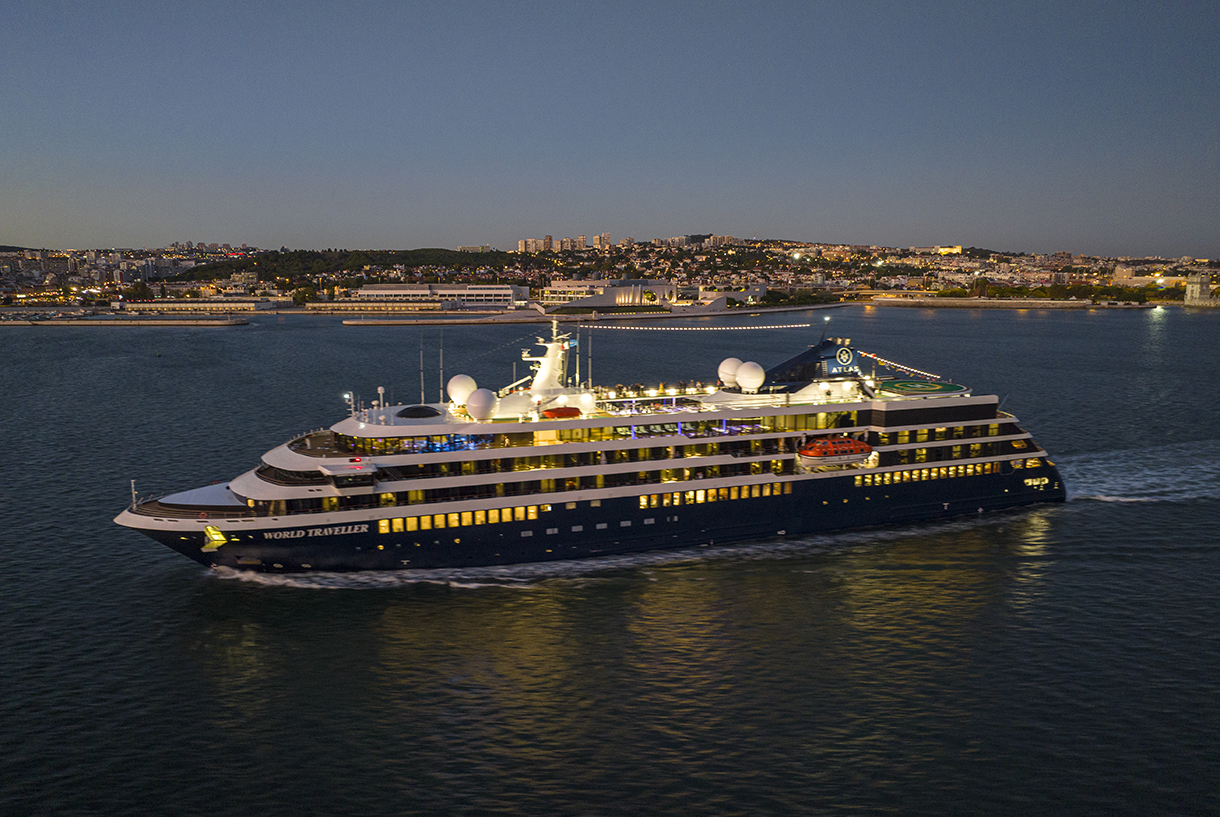 World Traveller
World Traveller
LUXURY EXPEDITION CRUISE
Atlas Ocean Voyages, which began sailing its first Polar-Class ship, World Navigator, less than a year ago, is determined to defy the odds as it navigates turbulent waters and continues to invest heavily in its growth. The Fort Lauderdale-based startup will unveil its second ship, World Traveller, this month, and has already begun construction on its third vessel, World Seeker, with a 2024 launch date. It plans to have five aircraft by 2025.
Atlas has adjusted its operating strategy based on its early missteps as a newcomer in a market segment severely affected by COVID. The all-inclusive line is still climbing a hill, but it’s making progress and is now on the radar of travel agents, especially in light of a recent leadership change. Anne Scully, a partner at Embark Beyond, a New York-based Virtuoso-affiliated travel agency, says: “They haven’t made much of an impact in the U.S. market, but James Rodriguez is now with them, and he’s great at marketing and has a large fan base among travel advisers.”
Indeed, Rodriguez joined Atlas in August as its new president and CEO, bringing with him valuable start-up experience. The seasoned cruise executive spent 19 years at Oceania Cruises, a company he helped establish from the ground up. According to him, the changes Atlas has made, some of which he has implemented himself, are already bearing fruit. In the past two months, for instance, the company’s Antarctica cruises have nearly tripled in popularity. He attributes the increase in sales to a number of factors, including having the right offer at the right time and ensuring that travel agents and prospective passengers understand the cruise line’s value proposition.
“Our guests get a luxury product that equals any of the luxury products out there, but at more of an Upper Premium price,” Rodriguez says, noting the average spend is $700 to $950 per person, per day, compared with $1,100 to $1,500 for expedition cruises operated by high-luxury lines such as Scenic and Silversea.
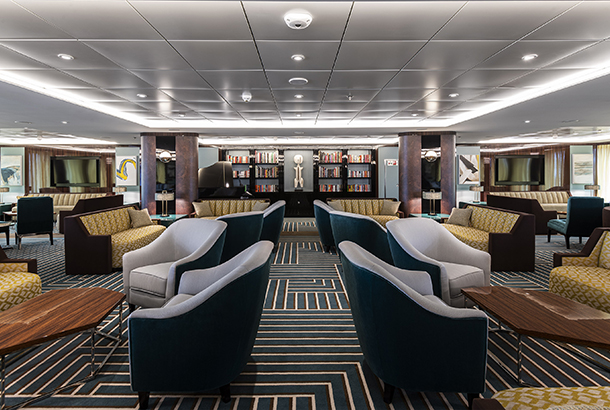 Atlas Lounge, World Navigator
Atlas Lounge, World Navigator
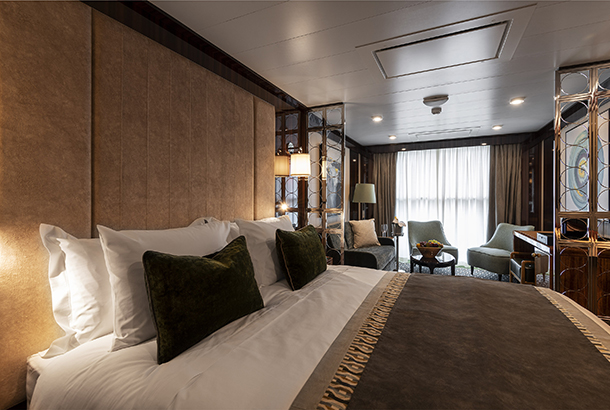 Horizon Stateroom, World Navigator
Horizon Stateroom, World Navigator
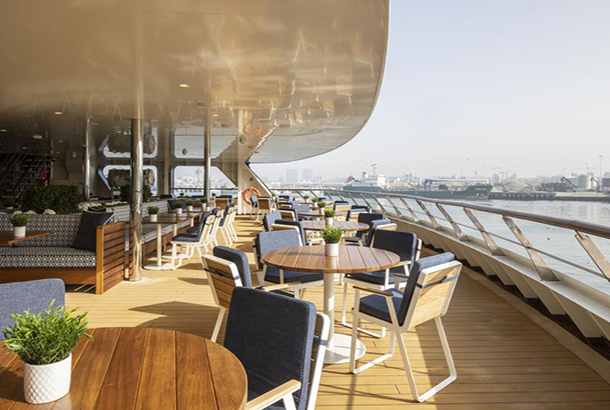 7-AFT Grill, World Traveller
7-AFT Grill, World Traveller
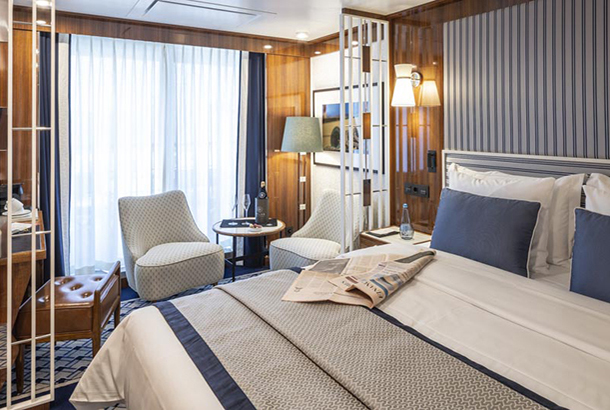 Veranda Stateroom, World Traveller
Veranda Stateroom, World Traveller
YACHT-STYLE CRUISING
Initially, the company marketed itself as a “luxury-adventure” line that offered thrilling and awe-inspiring cruises to less-visited, bucket-list destinations, particularly the Arctic and Antarctica. All of that is still accurate, but Rodriguez quickly shifted the pitch to one he believes better defines the product for potential guests: yacht-style intimate cruising.
It’s an effective pitch. To begin with, both ships have a luxurious yet casual design that is more consistent with the yachting lifestyle. World Traveller will have a la dolce vita look, with a lot of blues and lighter colors. And the ships, which have only 98 suites and staterooms, sail with fewer than 200 passengers, a number that fosters the same sense of intimacy and camaraderie as a yacht. In addition, a nearly 1:1 guest-to-staff ratio and butler service in all suites guarantee personalized service. “You get to know your fellow guests, the chefs, the captain, the officers, the lecturers, the naturalists a little bit more than on larger ships,” Rodriguez says, adding that guests can even have a drink and dinner with the expedition team leader at night.
Being yachtlike has additional benefits that enhance the guest experience. For instance, Antarctica only permits 100 people per landing, and with so few passengers on its ships, Atlas can land all of its passengers in a single day and continue its voyage. “We don’t have to stay in the same location two days in a row, so we’re able to get more landings and more places on our itineraries than other lines,” he explains.
Ports like Antibes, France, and Porto Venere, Italy, that are more associated with yachts than cruise ships are visited by the Atlas during the shoulder seasons. Originally, the company also planned to sail to exotic, smaller ports along the West Coasts of Africa and South America. However, they were difficult to sell to the all-important American market, so they have been eliminated as a result of a key strategic shift. Ports such as Athens, Barcelona, London, Monte Carlo, and Seville are now included in an increasing number of itineraries that combine boutique ports with traditional Mediterranean ports popular with Americans who wish to reconnect with places they know and enjoy now that pandemic travel restrictions have been lifted. When possible, Atlas coordinates its visits to these prestigious ports with crowd-pleasing special events, such as the Monaco Grand Prix and Seville’s wildly popular spring fair, La Feria de Abril. the website atlasoceanvoyages.com